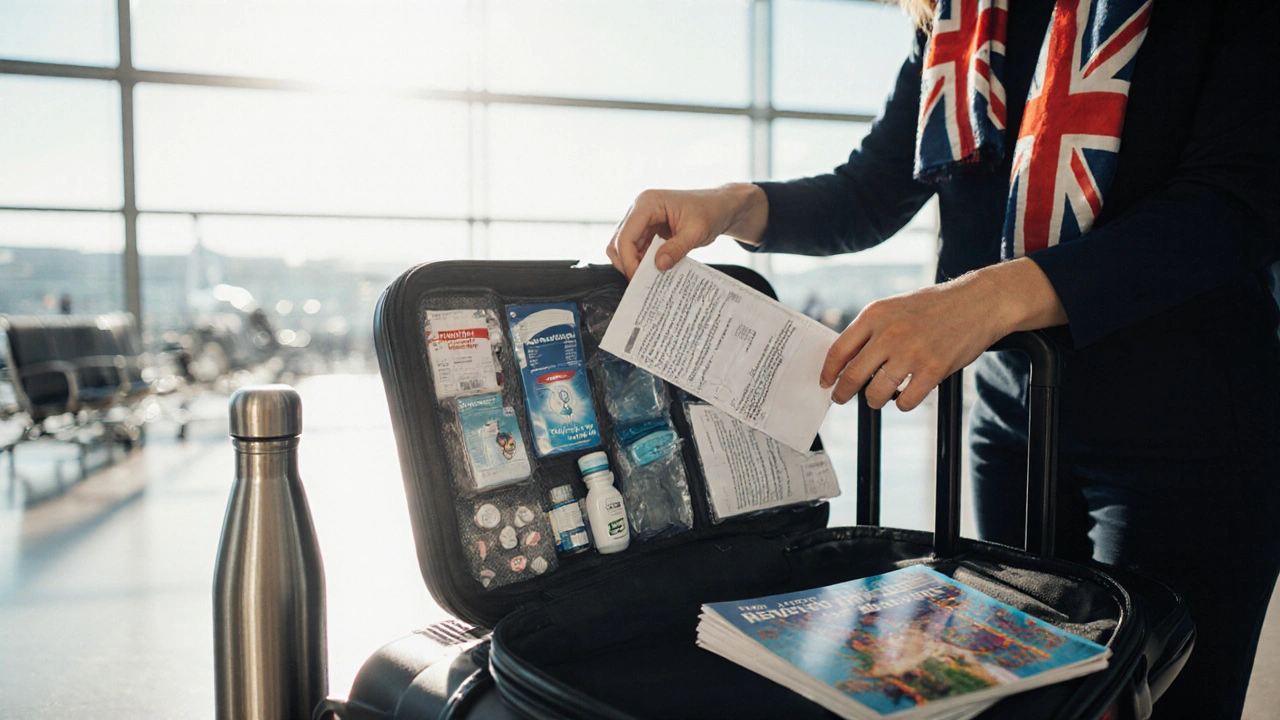Travel Health Diarrhea: Quick Tips for Safe Trips
Nothing ruins a vacation faster than an upset stomach. The good news is you can lower the risk and handle it fast if it happens. Below you’ll find easy steps you can take before you leave, what to pack, and exact actions to keep you moving.
How to Prevent Diarrhea on the Road
First, watch what you drink. Stick to bottled water with a sealed cap, avoid ice cubes unless you know they’re made from safe water, and use boiled or filtered water for brushing your teeth. If you’re unsure about a beverage, it’s safer to skip it.
Second, be picky about food. Cooked dishes should be piping hot, and fresh salads are best eaten only if you can peel the ingredients yourself. Street food can be delicious, but choose stalls where you see a high turnover of customers and clean prep areas.
Third, protect your gut with probiotics. Taking a daily probiotic supplement for a few days before you travel can prime your digestive system. Yogurt with live cultures works too, but make sure it’s kept cold.
What to Do If You Get Sick
At the first sign of loose stools or cramps, start rehydrating. Oral rehydration salts (ORS) are the gold standard, but a simple mix of 1 liter of clean water, 6 teaspoons of sugar, and half a teaspoon of salt works just as well. Sip slowly each hour.
If symptoms are mild, over‑the‑counter loperamide (Imodium) can reduce urgency. Use it only for short bursts—don’t mask a high fever or blood in stool, as that may hide a serious infection.
When you can, take a single‑dose antibiotic like azithromycin or a fluoroquinolone if you have a prescription. These are most effective when started within the first 24 hours of symptoms.
Seek medical help if you experience high fever, dehydration (dry mouth, dizziness), blood in stool, or symptoms lasting more than three days. Local clinics often have English‑speaking staff and can prescribe the right meds.
Finally, pack a small travel health kit: bottled water, ORS packets, probiotic capsules, loperamide, a prescription antibiotic (if your doctor approves), and a basic first‑aid set. Keep everything in a zip‑top bag to stay organized.
By following these simple habits, you’ll enjoy more of the sights and less of the bathroom lines. Safe travels!
Traveling with Chronic Diarrhea: Essential Precautions and Tips for a Smooth Trip
Learn practical tips to travel smoothly with chronic diarrhea, from packing a medical kit and staying hydrated to choosing safe foods, insurance, and emergency plans.
